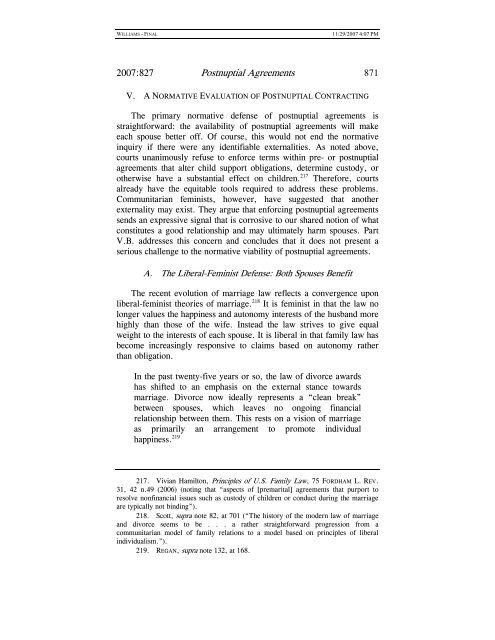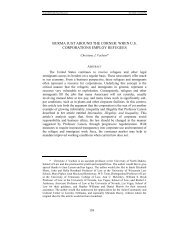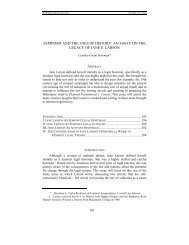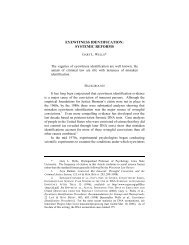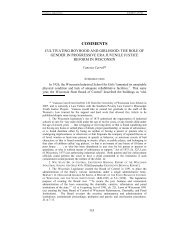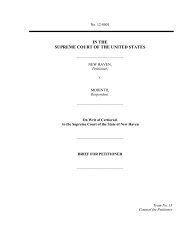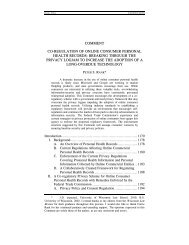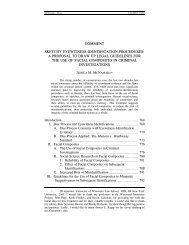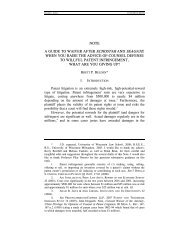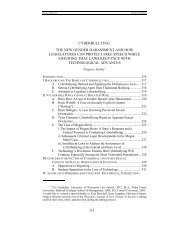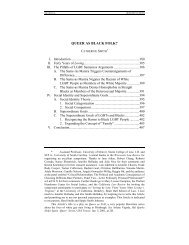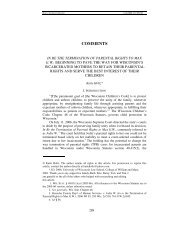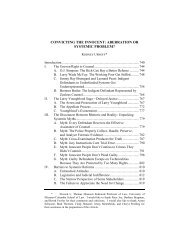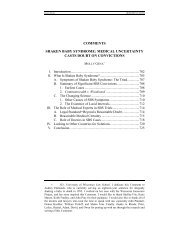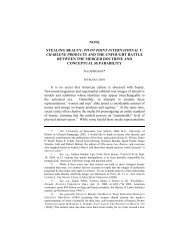POSTNUPTIAL AGREEMENTS - UW Law School
POSTNUPTIAL AGREEMENTS - UW Law School
POSTNUPTIAL AGREEMENTS - UW Law School
You also want an ePaper? Increase the reach of your titles
YUMPU automatically turns print PDFs into web optimized ePapers that Google loves.
WILLIAMS - FINAL 11/29/2007 4:07 PM<br />
2007:827 Postnuptial Agreements 871<br />
V. A NORMATIVE EVALUATION OF <strong>POSTNUPTIAL</strong> CONTRACTING<br />
The primary normative defense of postnuptial agreements is<br />
straightforward: the availability of postnuptial agreements will make<br />
each spouse better off. Of course, this would not end the normative<br />
inquiry if there were any identifiable externalities. As noted above,<br />
courts unanimously refuse to enforce terms within pre- or postnuptial<br />
agreements that alter child support obligations, determine custody, or<br />
otherwise have a substantial effect on children. 217 Therefore, courts<br />
already have the equitable tools required to address these problems.<br />
Communitarian feminists, however, have suggested that another<br />
externality may exist. They argue that enforcing postnuptial agreements<br />
sends an expressive signal that is corrosive to our shared notion of what<br />
constitutes a good relationship and may ultimately harm spouses. Part<br />
V.B. addresses this concern and concludes that it does not present a<br />
serious challenge to the normative viability of postnuptial agreements.<br />
A. The Liberal-Feminist Defense: Both Spouses Benefit<br />
The recent evolution of marriage law reflects a convergence upon<br />
liberal-feminist theories of marriage. 218 It is feminist in that the law no<br />
longer values the happiness and autonomy interests of the husband more<br />
highly than those of the wife. Instead the law strives to give equal<br />
weight to the interests of each spouse. It is liberal in that family law has<br />
become increasingly responsive to claims based on autonomy rather<br />
than obligation.<br />
In the past twenty-five years or so, the law of divorce awards<br />
has shifted to an emphasis on the external stance towards<br />
marriage. Divorce now ideally represents a “clean break”<br />
between spouses, which leaves no ongoing financial<br />
relationship between them. This rests on a vision of marriage<br />
as primarily an arrangement to promote individual<br />
happiness. 219<br />
217. Vivian Hamilton, Principles of U.S. Family <strong>Law</strong>, 75 FORDHAM L. REV.<br />
31, 42 n.49 (2006) (noting that “aspects of [premarital] agreements that purport to<br />
resolve nonfinancial issues such as custody of children or conduct during the marriage<br />
are typically not binding”).<br />
218. Scott, supra note 82, at 701 (“The history of the modern law of marriage<br />
and divorce seems to be . . . a rather straightforward progression from a<br />
communitarian model of family relations to a model based on principles of liberal<br />
individualism.”).<br />
219. REGAN, supra note 132, at 168.


